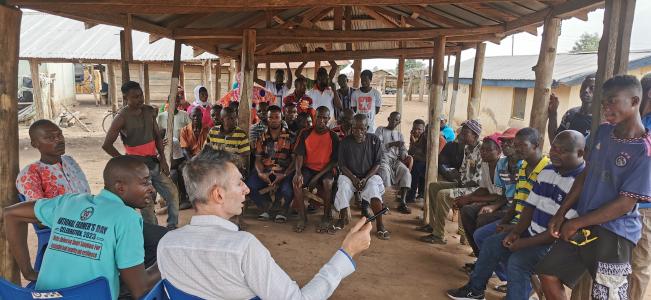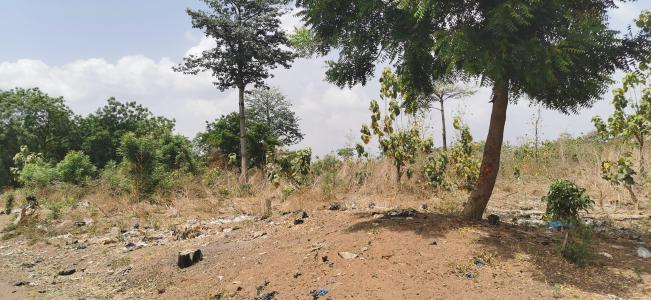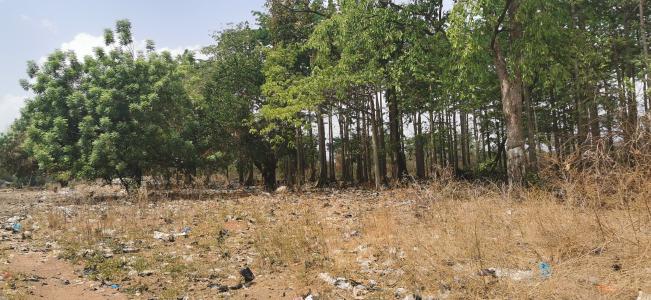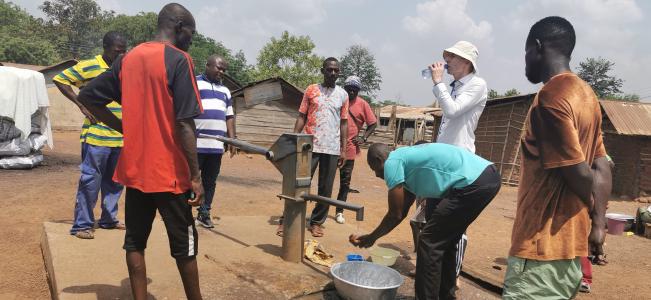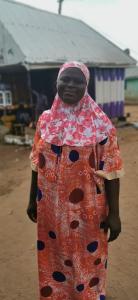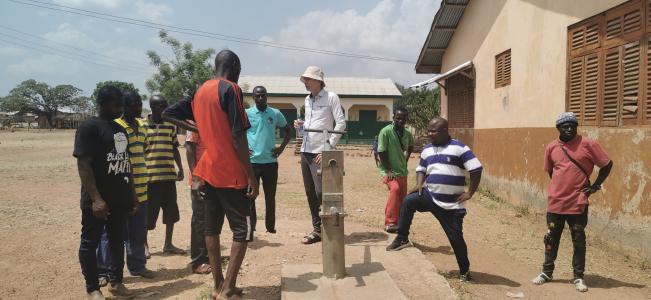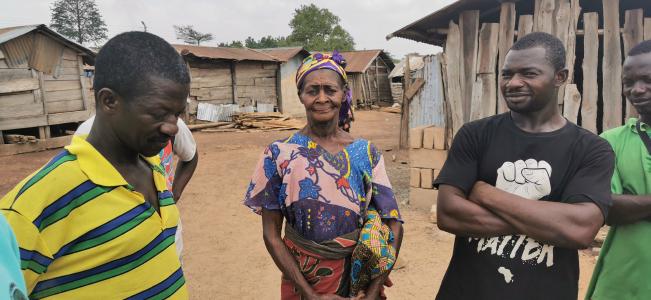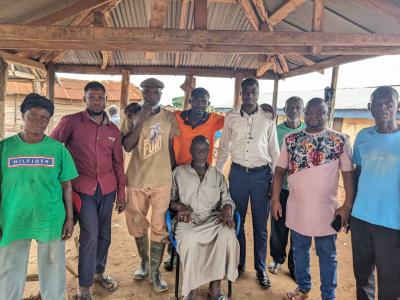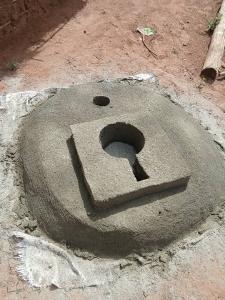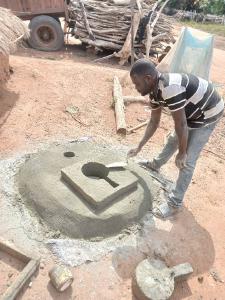Toilets in Bunuso
Rationale and planning for the project
Bunuso has about 600 households and a population of 3600. we received a letter from community leaders Hudu Mumuni Yahaya, Paul Kobi and Nuhu Mahama, and Mark went to visit the village in February 2024.
Most urgent request: public toilet
Bunoso has no toilets at all, and community members have no choice but to use the bush for their daily needs. The photos show the current “toilet site” that they use. It is fraught with danger, especially at night. There is a risk of bites from insects and other animals, and there is a risk of sexual aggression, particularly for women.
Community members have requested that we build a public toilet. This is an unusual request; most villages want one private toilet per household. Building a public toilet is considerably less expensive than building a private one for each of the 600 households. The challenge of building a public toilet is to ensure it is properly maintained after it has been built. The options are a subscription model (monthly payment) or a pay-per-use model, to generate a fund for maintenance. A committee will administrate the fund. There was some discussion about exactly how this would work, and the community seems determined that they will be successful.
Initially we planned to follow the villagers request. The toilet would have been be built using the standard design in rural Ghana. It would have had eight seats; four for male users, and four for females. It would have been be a single building, with the male and female entrances at opposite ends. Each cubicle would have been brick-built on three sides, with a wooden door making the fourth side, lockable from the inside. There is no running water; each toilet would be a dry pit latrine with a vent pipe.
In February 2025, we learned that public toilets are no longer the recommended practice for residential situations. They are still considered OK in public places (like bus stations and markets), but in private residences the recommended practice is to build individual latrines, one for each household. Of course, this is much nicer for the families, and the toilets will certainly be better maintained. However, it is much more expensive. We therefore changed the plans to build about 100 private toilets. Initially, each toilet will be shared between 2-3 houses. We hope to get funds to build more toilets soon
Possible future projects in Bunuso
We will start by building the public toilet, and if that is successful and the community has installed the right procedures for running it with a properly-managed maintenance fund, we may continue supporting Bunuso with other projects.
Borehole mechanisation. A possible next project is the mechanisation of their three manual boreholes. This is important because drawing water manually is predominantly done by women and children. Currently the water cost is 10 peswas per gallon container. It will cost more if the borehole is mechanised, since they’ll have to pay for the electricity too. There was some discussion during our meeting, and a new price of 30 peswas per gallon was suggested. A woman called Barikisu spoke up and said it was worth it. Other women agreed. That’s because it will mostly save women’s work. So that is a strong motivating factor.
School borehole repair. By the Bunuso school, there is a school-owned borehole (pictured) which is out of repair. They lack the funds to repair it. School water is not charged, so the method of using the charges to pay for repairs doesn’t work in the case of a school borehole. The school serves 570 pupils and 21 teachers, divided into KG, primary and JHS.
After the main meeting, we had an impromptu second meeting as we walked around the village. We talked to some women who hadn’t managed to come to the main meeting. They were very pleased that Turbo Ghana would fundraise for their village.
Progress (September 2025)
As mentioned, we decided not to build a public toilet (as had been requested), but to follow recommended practice and build private latrines. Kwasi had a meeting with the villagers to explain the change of plan. Some households will have to share toilets initially, because building individual latrines is much more expensive and we don’t have the funds to do one for each household. Other households won’t get a toilet at all, until we manage to get funds for a second phase. The building work has begun, and we hope to have the initial phase finished by the time of Mark’s visit at the end of the year.
